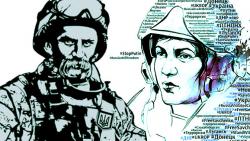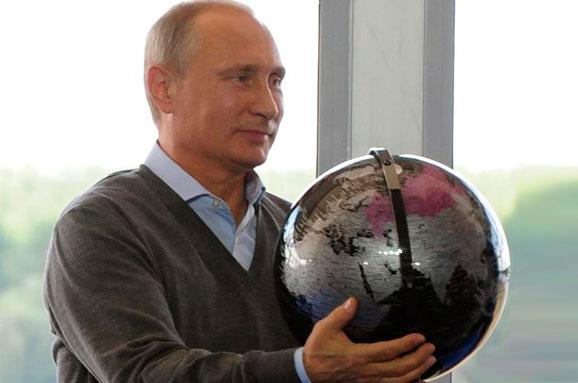The rescheduling of Russia Day to a day tied to an event that took place in a foreign land appears to place a clear task in front of the Putin empire — the “liberation” or, more accurately, the occupation of Ukraine.
The Russian Communists proposed that the date of Russia Day, the main national holiday of the country, be moved from the date commemorating the adoption of the Declaration of State Sovereignty of the Russian Soviet Federative Socialist Republic (RSFSR) to the date commemorating the Baptism of (Kyivan) Rus.
This proposal may seem strange — especially when it comes from representatives of the party that destroyed churches and killed priests. But it is actually all quite logical. At present, Russia Day is a celebration of nothing at all.
It is associated with one of the dates that reflected the confrontation between two centers of power in Russia — the Gorbachev and the Yeltsin ones. Russia, naturally, did not want any sovereignty from the Soviet Union. It was the Soviet Union.
Simply, at that time, the Russian leadership made every effort to weaken Gorbachev, and most Russians already believed in the new “tsar” and, for some reason, had no doubt that the people in the “neighborhoods” would believe it as well once it became clear the “older brother” wanted it that way.
The fact that the result of the sovereignty processes and the struggle between Russia’s two centers of power would lead to the collapse of the USSR was a shock for Yeltsin and for his compatriots. Ordinary Russians still decry the “country they lost.”
However, they could still be fully ecstatic about the declaration of sovereignty. The inability to see the cause and effect of their own actions is a key characteristic of Russian political thinking.
With such mental confusion no one in Russia would be able to tell you exactly what is celebrated on June 12. What Declaration? What sovereignty? From whom? What RSFSR? But the Day of Baptism is logical. After all, it took place not in Moscow but in Kyiv.
The rescheduling of Russia Day to a day tied to an event that took place in a foreign land appears to place a clear task in front of the Putin empire — the “liberation” or, more accurately, the occupation of Ukraine.
After all, it is obvious that if this main day in Russia’s history is linked to Kyiv, then Kyiv must be “liberated from the Banderites.” (pejorative Russian term for Ukrainian nationalists — Ed.). And this also helps to justify the occupation of Crimea and the other criminal actions of the Putin regime.
The fact that such a proposal was made by Communists is also completely logical. After all, their main task was to restore the Russian empire under the red flag. The church was not needed for this process — as it had not been not needed by the Romanovs (Russia’s last imperial dynasty — Ed.) either. They destroyed the institutions of the patriarchate by turning the Church into an appendage of their court.
When Stalin needed the Church during the war he had no problem permitting the election of a patriarch — even after destroying most of the priests during the years of Bolshevik terror. And for the former communists who had established their own power during the Yeltsin and Putin years, the Church is the main ally.
It is no coincidence that the representatives of the Russian Orthodox Church supported the initiative of the Russian Communist Party. The Communist Party and the Russian Orthodox Church are the two main pillars of Russian obscurantism (the policy of withholding information from the public — Ed.). The only thing that remains to be seen is what Putin himself thinks of what is taking place and what he decides is more important — to legitimize constant war while celebrating the right of annexation or to remain the heir of Boris Yeltsin. Putin’s choice will demonstrate on which layers of the nomenklatura (Communist Party appointees in key positions in the former Soviet Union — Ed.) he is more dependent now.








